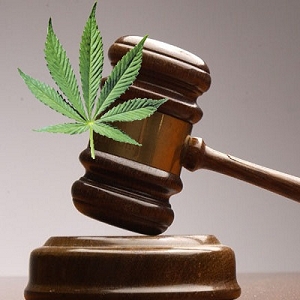AZ Supreme Court Clears Path for Recreational Marijuana Initiative
Arizona will be joining California, Maine, and Nevada in having a recreational marijuana measure on the ballot in November. The Arizona Supreme Court ruled on August 31 that a measure to make recreational use of marijuana will be permitted to be on the ballot in the fall. The ballot measure, better known as Proposition 205, aims to make recreational use of marijuana legal for Arizona residents who are 21 years of age or older.
While Proposition 205 will permit anyone who is at least 21 to possess and use marijuana without requiring them to also have a medical marijuana card, it still contains limits on the use and possession of marijuana. Arizonans who would be able to possess marijuana can only have 1 ounce in their possession at any given time. If a person possesses more than an ounce, they would be guilty of a misdemeanor. Possession of 2.5 ounces or more will still be a felony in Arizona.
This may prove to be a problem for many Arizona residents who intend to take advantage of the law if it passes, as the initiative also permits for people who are of age to cultivate 6 plants and consume everything produced by those plants. If a person cultivates a total of 6 plants but does not consume everything that all of the plants produce in a timely fashion, it may result in the person being in possession of more than 1 ounce accidentally and being in violation of the law. 
A group called Arizonans for Responsible Drug Policy had filed a challenge to Proposition 205 with the intent to block it from appearing on the ballot. The complaint alleged that the supporters of the initiative used tactics to get it on the ballot that were unconstitutional. Also, the group asserted that the actual initiative violated Arizona state law in three separate ways.
First, the 100-word summary describing the proposition that was presented to voters to obtain signatures was allegedly fraudulent and misleading in its wording, meaning that people who signed the petition intended to get the measure on the ballot did not fully understand what they were signing in support for. Second, the summary failed to inform people about changes to different pre-existing laws that the initiative would enact if it passed, such as changes to employment and child custody laws. Third, the summary failed to identify a financial source to support the agency that will be created for the sole purpose of enforcing the regulations attached to the initiative.
However, the Arizona Superior Court judge who was assigned to the case ruled against the plaintiffs. First, the judge found that the Arizonans for Responsible Drug Policy did not have standing to bring the lawsuit. This was due to alterations made to the law by the Arizona legislature in 2015 that severely limited a citizen’s right to challenge any ballot initiative. The judge also took the time to address and rule against the actual claims in the lawsuit. In doing so, the judge determined that the supporters were allowed to put as much or as little information into the summary as they wanted, and that the summary was clear enough, in the judge’s opinion, that the signers of the petition knew what they were signing in support of.
The organization bringing the lawsuit did appeal the superior court’s ruling, but, as previously mentioned, the Arizona Supreme Court also ruled against the organization. Unlike the lower court, the Arizona Supreme Court did not state that the Arizonans for Responsible Drug Policy lacked standing. Instead, the Arizona Supreme Court focused only on the actual issues listed in the complaint when it issued its ruling. Thus, it is uncertain how this case may affect other lawsuits brought with the intention of blocking ballot initiatives. One thing is for certain, though, Arizona residents will be granted the opportunity to vote on whether or not they would like to have recreational use of marijuana legalized in their state.


Comments